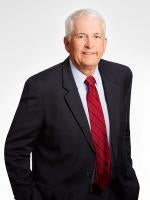On Monday, June 30, 2014, the U.S. Supreme Court handed down a 5-4 decision in Harris et al. v. Quinn et al., striking down Illinois public-sector “fair share” policies that required home healthcare providers for Medicaid recipients to pay union fees. The Court held that the home healthcare providers were only partial public employees and therefore did not have to pay “fair share” or “agency” fees to the union representing them. The home healthcare providers originally challenged the policies because they believed the policies infringed on their First Amendment rights by “forcing them into speech they did not necessarily agree with.”
The Court declined the opportunity to overrule its 1977 Abood v. Detroit Board of Education decision, where it held that public employers could require all employees, whether union members or not, to pay union fees, except for those fees that covered ideological activities.
Justice Alito, writing for the majority, stated, “[b]ecause of Abood’s questionable foundations, and because the personal assistants are quite different from full-fledged public employees, we refuse to extend Abood to the new situation now before us[.]”
The dissent, led by Justice Kagan, felt the majority misapplied the Abood ruling, alternatively stating that the home healthcare providers could be joint employees of the state and the patients they cared for, bringing them “squarely” within the Abood ruling. Justice Kagan wrote, “[f]or some 40 years, Abood has struck a stable balance – consistent with this court’s general framework for assessing public employees’ First Amendment claims – between those employees’ rights and government entities’ interests in managing their workforces.”
What does this mean for employers?
The Abood decision remains intact, meaning public employers can still require full-fledged public employees to pay certain union fees. The home healthcare providers in Harris can remain unionized, but the State of Illinois cannot require these providers to pay “fair share” or “agency” fees to the union if they choose not to join. Additionally, the Harris decision could open the door for further challenges to the reaches of Abood. Employers should evaluate whether today’s decision impacts their organization and what changes they may need to implement if applicable.





 />i
/>i

